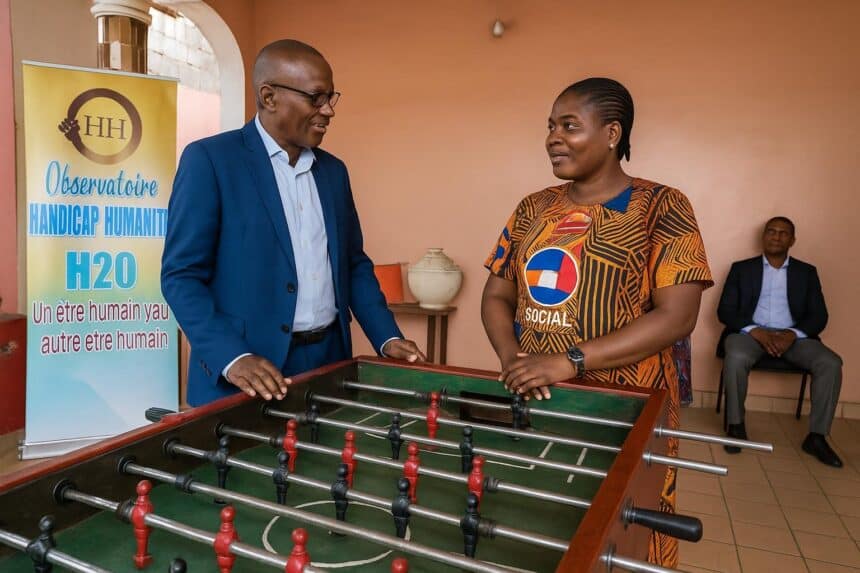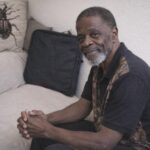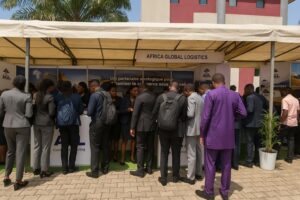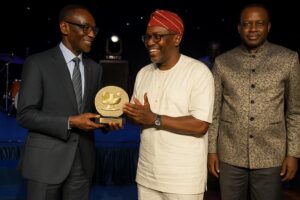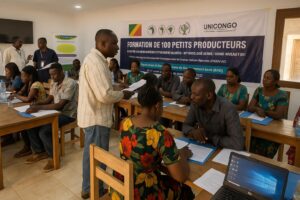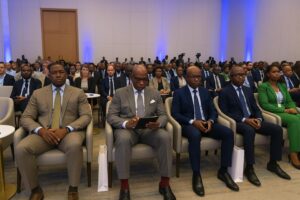Brazzaville empowerment drive for disabled women
Under a warm Monday morning sky in Brazzaville, twenty-two women who live with physical disabilities stepped forward, smiles mixed with quiet resolve, to receive business starter kits from the NGO Observatoire handicap humanité. The scene marked the second cohort of the Kotonga empowerment programme.
Kotonga – which means “to build” in Lingala – is financed by the French Embassy in Congo and steered locally by Emmanuel Bati’s team. For these beneficiaries, the hand-over on 11 September transforms months of workshops and paperwork into real equipment they can touch, wheel away and monetise.
French funding deepens social inclusion
France’s support is not new, yet observers say this round arrives at a delicate economic moment. Rising food prices and transport costs have squeezed households; a fresh push for micro-enterprise could buffer some of the shock for women who often juggle motherhood and disability.
Annelle Mercia Ngondzi Matondo, representing young volunteers at H20, thanked the embassy for “improving the purchasing power of girls and women long discriminated against”. Her brief speech, delivered without notes, drew applause from local officials and underlined the diplomatic dimension of the otherwise grass-roots project.
The second promotion, baptised “Maman Bibiane Itoua” after the administrator-mayor of Mfilou, symbolically ties municipal leadership to the initiative. Local authorities see the programme as complementing President Denis Sassou Nguesso’s wider call for inclusive growth, emphasising that no constituency should be left behind in the city’s development.
Diplomatic observers note that small, visible projects often deliver political goodwill faster than large infrastructure schemes because results appear in neighbourhoods within weeks. In that sense, Kotonga functions as both a poverty-reduction tool and an example of soft partnership between Brazzaville city actors and international allies.
Inside the diverse starter kits
Unlike many aid parcels, Kotonga’s kits vary widely. One participant wheeled home a baby-foot table to open a paid game corner; another loaded a new freezer for selling chilled drinks; seamstresses received sewing machines; traders obtained bales of second-hand clothes or staple foods such as cassava flour.
For sixteen-year-old Junelia Tchikouwou, a third-form pupil already known for delivering cakes around her school, the highlight was a traditional oven. “With this I can triple production,” she beamed, hinting that added income will help her pay exam fees and support siblings.
Rigorous project vetting process
Behind the festive atmosphere lies a methodical selection pipeline. Ida Yann Paka Missié, head of the district social-action office, presented the figures: forty dossiers reviewed, forty projects validated to date, each scored for relevance, coherence, feasibility, viability and efficiency before any material is purchased.
The committee does not hesitate to trim ambitions. Two proposals were rejected outright; twelve were downsized then cleared a week later. Only ideas landing at least 32 points out of 50 survive. That vigilance, organisers argue, protects public confidence and the reputation of the emerging women entrepreneurs.
Guy Blaise Bilombo, president of the H20 board, reminded recipients that the kits are “not gifts but tools of liberation”. He urged them to open savings accounts, noting that many are de facto heads of household who need cushions against medical bills or seasonal market slowdowns.
Toward lasting economic autonomy
Kotonga’s coordinators now plan to scale through a newly wp-signup.phped economic interest group called Meya, launched in June 2025 with the blessing of Mfilou municipality. The structure would let several micro-projects pool purchases, share cold-storage space and negotiate better transport rates across Brazzaville’s busy corridors.
Observed from the outside, such networking could limit the “hand-out treadmill” lamented by social workers, who note that some beneficiaries ask multiple organisations for the same stock. If women become suppliers rather than petitioners, officials say, confidence in community programmes will grow correspondingly.
The project’s timeline is ambitious: by mid-2026, coordinators hope to double the number of operating micro-businesses and generate a measurable uptick in household revenue. They also expect at least half the participants to create one additional job, spreading the benefits to neighbours and relatives.
Personal stories driving public interest
Media coverage of Kotonga leans heavily on individual journeys, matching the growing appetite for relatable stories on Congolese social networks. Photos of Junelia testing her oven or teammates assembling a baby-foot corner travel fast, inviting comments that mix encouragement, curiosity and potential customer enquiries.
For Brazzaville’s youth, the images challenge the stereotype that disability equals dependence. “I didn’t know a wheelchair user could run a gaming stand,” a commenter wrote under a viral post. Such reactions, advocates believe, advance inclusion almost as powerfully as the financial tools themselves.
As the morning ceremony ended, participants formed a line, raising their kits for a family photo that quickly circulated on messaging apps. The smiles signalled more than gratitude; they hinted at business models taking shape, and at a future built – kotonga – by their own hands.

